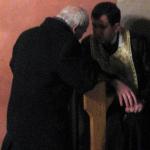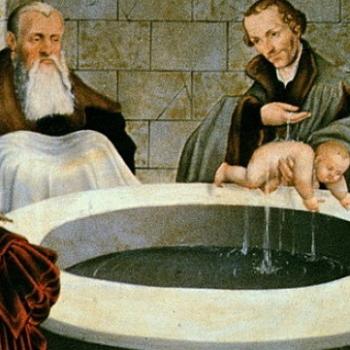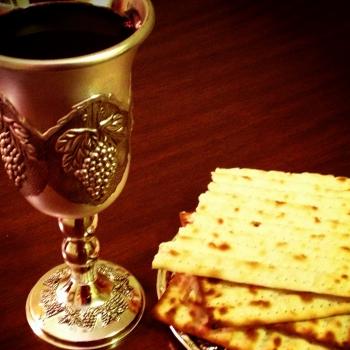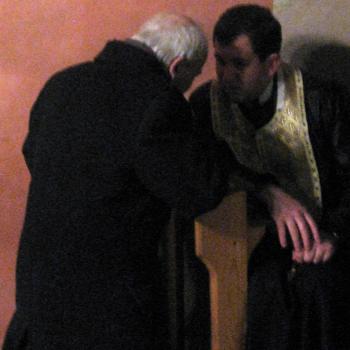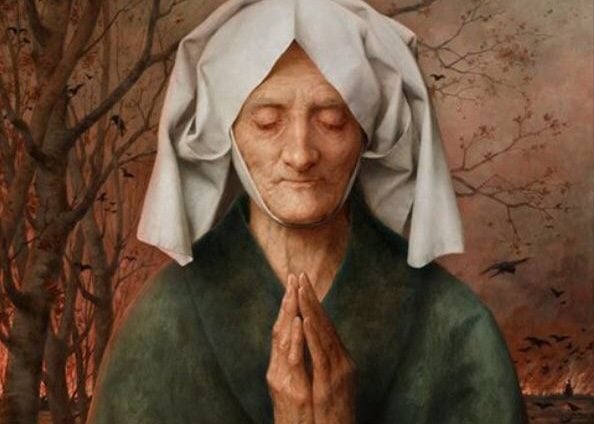
“Old Flanders” by Theophile Lybaert (1915)
So there I was, innocently minding my own business, when someone hands me the following “I love you but let me attack you” piece of anti-Catholicism.
I love you sister and I’m sorry that you think I’m persecuting you because I’m not. I never once judged or condemned you. I was exposing the false church itself and now I will talk about a few reasons why it is blasphemous. [But he’s not “judging” or “condemning.”] I can confidently say that because they go against what God says in the Bible. First thing would be praying to dead saints, this is idolatry since prayer is a form of worship. The definition of prayer is: “a solemn request for help or expression of thanks addressed to God or an object of worship.” Praying to Mary is also idolatry for the same reason.
Second reason is priests somehow being able to forgive us of our sins even though they’re human just like us? Only God can forgive sin.
Another reason is the Catholic doctrine concerning communion. It is supposed to be done purely has a symbol or metaphor of the body and blood of Christ. However in Catholic mass before everyone participates in the communion, the priests conduct a ritual that they call transubstantiation. They believe this ritual/prayer turns the bread and wine into Christ’s literal body and blood which is not true and this is cannabilistic in nature. Yes I know that it’s still bread and wine, but the intention of eating his literal body and blood is there in that person’s heart which makes it sinful in nature. Same idea applies to how Jesus says that even if you look at someone with lust in your heart, it is the same as actually committing the physical act of adultery.
Another reason is His Catholic priests are called “father.” Why is this wrong? Matthew Chapter 23 has the answer: (Matthew 23:8-10) But you, do not be called ‘Rabbi’; for One is your Teacher, the Christ, and you are all brethren. Do not call anyone on earth your father; for One is your Father, He who is in heaven. And do not be called teachers; for One is your Teacher, the Christ.
Another reason is because they baptize infants. In the Bible, water baptism is a conscious act of faith that someone does when they accept Jesus Christ as their savior. An infant is not old enough to have the mental capacity to accept Jesus Christ by their own free will. Also in the Bible, water baptism is always done with the new born again believer being fully submerged under the water (this is a symbol of your death and resurrection through Christ).
The Bible never mentions purgatory ever yet Catholic doctrine teaches there is such a place.
Lastly, the origin of the Catholic church comes from the Roman Emporer Constantine. The empire started to crumble so he tried to unify the pagans and Christians in the empire by his “Christianization” of pagan beliefs which is what gave birth to the Catholic church. Christians who read and knew their Bibles rejected the Catholic church because of these reasons that I have talked about. A famous believer who did this later down the road was Martin Luther.
This person, who is full of love and does not wish to condemn, not at all, no, ended with a warning that you can’t drink from the cup of the Lord and the cup of devils, and linked to the credible source gotquestions.org.
(By the way, is it also your experience that people like the one I quote above do not so much have a discussion as a food-throwing party? What I mean is, they can’t just talk about one question at a time; they throw everything on the table at the wall, all at once, to see what sticks as it were? Or to try to overwhelm you with seventy-five different claims at once? It takes about 300 words to make all these claims, and maybe about 300 pages to clear away all the errors. Just an observation.)
But here are seven to get us started. In spite of the fact that objections like these have been answered to death, in Christianity, the dead rise; and I thought it might be useful to have a single place where they are all taken up again, one per blog article; so that you, dear reader, can post links around the internet when some long-refuted claim comes back to life.
***
So what about this “Catholics pray to dead saints” claim?
Well, the answer really does depend on how you define pray. Our interlocutor—let us call him Mr. Y—does attempt to take up this important point.
The definition of prayer is: “a solemn request for help or expression of thanks addressed to God or an object of worship.”
Right. You can find that wery definition here. The problem is, the definition is incomplete. According to Oxford Dictionaries Dot Com, this is the definition “in U.S. English.” Perhaps Mr. Y thinks that English is only spoken in the United States.
But no. Merriam Webster is more complete. To “pray” also means “to make a request.” Dictionary.com has the same: “to make an ernest petition to a person.” And Cambridge Dictionary defines it: “a forceful way of saying please.”
Even the original source, Oxford Dictionaries, says that the word “pray” derives from the Latin precarius, which means “to make a request.” And you can find this usage of pray—to make a request independent of worship or whom you are addressing—all over the place. You can find it in Shakespeare:
I pray you, in your letters, / When you shall these unlucky deeds relate, / Speak of me as I am. (Othello V.ii.356-358)
I pray you, do not fall in love with me / For I am falser than vows made in wine. (As You Like It III.v.81-82)
Speak the speech, I pray you, as I pronounced it to you, trippingly on the tongue. (Hamlet III.ii.1-2).
And you may multiply these examples with little effort. Indeed, the word “prithee,” also common in Shakespeare, is a contraction of “I pray thee.”
So yes, Catholics do “pray to dead saints.” (Though we would object to describing them as “dead.” That’s another article.) If by pray you mean no more than “make a request,” that’s exactly what we do when we pray to saints. We ask them to obtain something for us.
And of course, what we do obtain in this way comes not from the saints themselves, but from God. It is no different than if I were to ask my mother to pray for me. If God answers this prayer, God answered it, not my mother. I can use all the help I can get, including from an intercessor.
That’s the sense of “praying to saints.” We believe them to be intercessors; we do not believe them to be divine.
So I pray you, stop it with that false charge.
***
This series will continue each Sunday on the blog.


